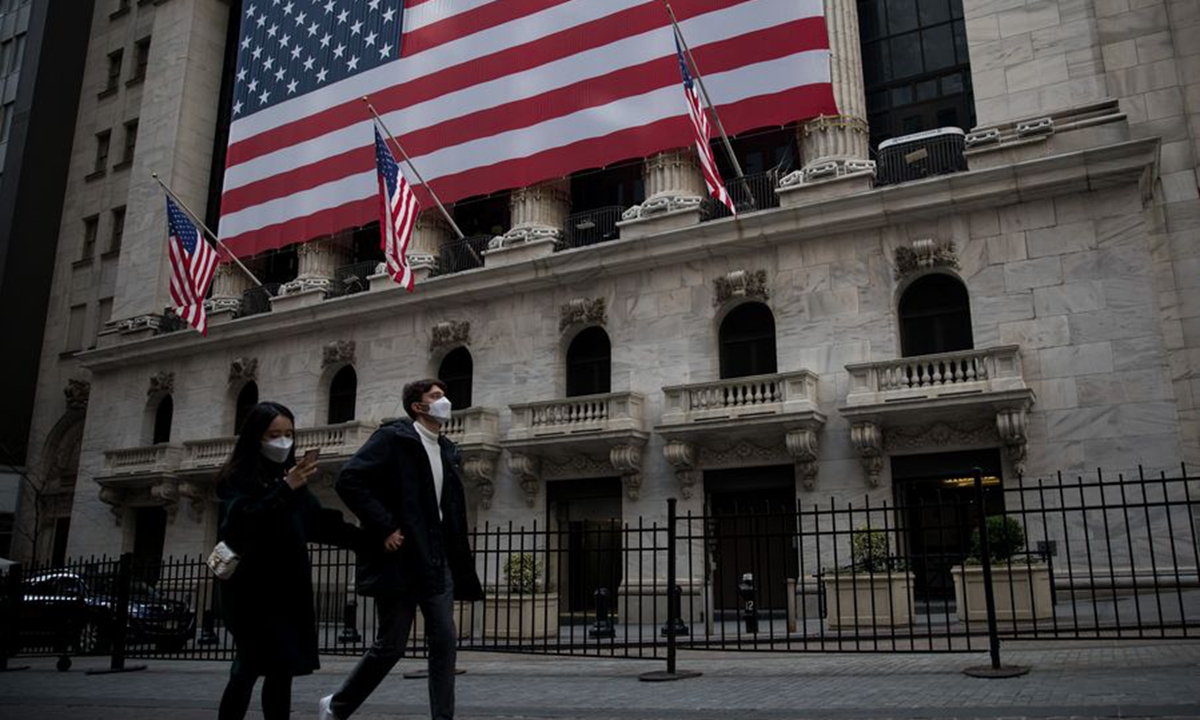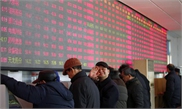
Pedestrians wearing face masks walk past the New York Stock Exchange in New York, the US, on March 18. Photo: Xinhua
While relationship between China and the US seems to have ebbed to their lowest level in many years, the story in the financial sector may be completely divergent, with Chinese companies lining up to float in the US stock market recently.
Chinese companies have raised $6.6 billion through initial public offerings in the US this year, marking a new record and an eightfold increase compared with the same period last year, according to a Bloomberg report on Sunday.
Meanwhile, data from Deloitte China also showed that the first quarter of this year saw 20 Chinese companies get listed in the US stock market, compared to six in first quarter of 2020.
The record going-public for Chinese companies in the US has occurred at a time when China-US relations are fraught and US securities regulators are planning for intensified scrutiny over US-listed foreign companies' accounting issues.
In late March, the US Securities and Exchange Commission announced it would begin to implement the Holding Foreign Companies Accountable Act (HFCAA) to tighten oversight of US-listed foreign companies.
While the Trump administration law is aimed at all non-US companies, it is widely believed to target Chinese listed companies in the US market. Under the HFCAA, companies that fail to comply with the American auditing standards for three years in a row will be delisted from US exchanges, but the Chinese laws and regulations don't allow US securities regulators to examine the auditing records of Chinese companies on national security concerns.
But it seems that neither geopolitical tensions nor the risk of being ousted from US exchanges have deterred the accelerating listing trend of Chinese companies. The reasons are not hard to discern. For starters, the US Federal Reserve's unprecedented quantitative easing policy has left the US financial markets with flooded liquidity, which presents good timing for many Chinese start-ups to seek funding. Second, American investors cannot resist the appeal of sharing the dividend of China's rapid economic transformation by pouring into some innovative Chinese companies.
To a certain extent, the red-hot financing could be symbolic of the economic and trade cooperation between the world's two largest economies, which has proved to be resilient enough to withstand uncertainties caused by a wave of so-called 'decoupling push' by the hardline politicians in Washington.
In fact, despite policy headwinds from Washington during recent years, securities investments between China and the US have become one of the world's fastest-growing and largest bilateral investment relations.
According to a report from New York-based Rhodium Group, by the end of last year, Chinese investors held about $2.1 trillion in securities issued by US companies and organizations, while US investors held $1.2 trillion in securities issued by Chinese companies.
The China-US economic competition or rivalry has been a focus of attention in the global arena, but there exists tight interdependence in this important relationship, especially when it comes to economic and trade cooperation. Some US politicians have tried to hype up the competition part of the bilateral ties, through instruments such as writing the Strategic Competition Act of 2021 which reportedly aims to counter China's rise.
What they fail to see is that the economic bond between the two countries has been growing on the basis of the complementarities of their economic structures. Any attempt to deny this connection and try to sever the ties will actually go against what the market wants and will not succeed.


